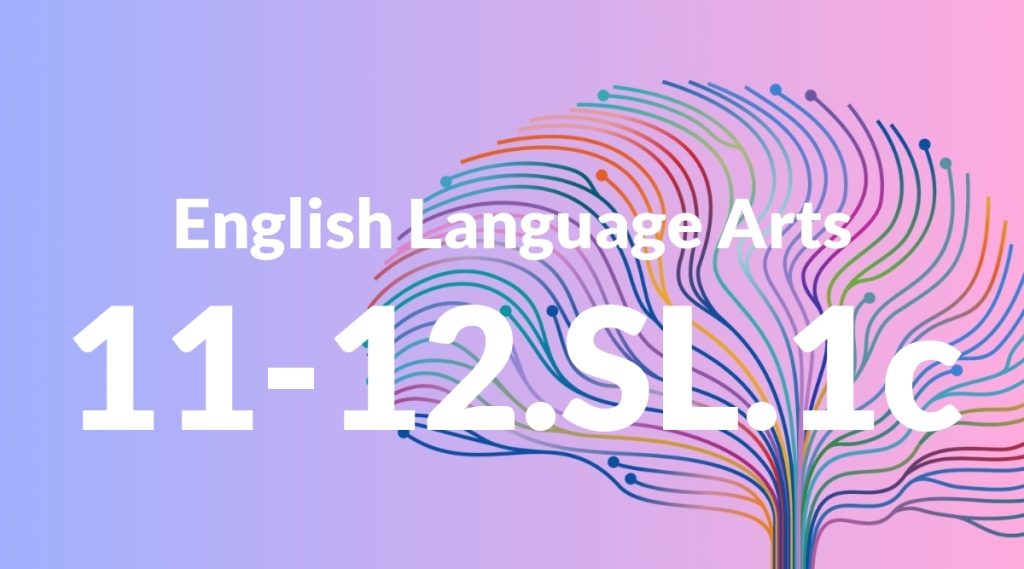Standard: 11-12.SL.1c – Propel conversations by posing and responding to questions that probe reasoning and evidence; ensure a hearing for a full range of positions on a topic or issue; clarify, verify, or challenge ideas and conclusions; and promote divergent and creative perspectives.
Grade level: Grade 11-12
Subject: English Language Arts
Domain: Speaking & Listening
Teacher Overview
This standard emphasizes the importance of engaging in meaningful conversations that explore a range of perspectives and promote critical thinking. It is crucial for students to learn how to ask insightful questions, challenge ideas constructively, and contribute to discussions in a way that fosters creativity and diverse viewpoints. Mastery of this standard will prepare students for academic and professional environments where collaboration and effective communication are key. Students should already be comfortable with basic conversational skills and understand the role of evidence in supporting arguments. They should also have experience participating in group discussions and be familiar with the concepts of active listening and respectful dialogue.
Upon mastering this standard, students will be able to lead and participate in sophisticated discussions, facilitate balanced debates, and engage in advanced argumentation. These skills are crucial for success in higher education and professional settings, where effective communication and collaboration are essential.
Common Misconception 1
A common misconception is that students only need to express their own views in a conversation. This is incorrect because effective conversations require active listening and engagement with others’ ideas. By only presenting their own views, students miss the opportunity to deepen their understanding and contribute to a richer discussion.
Intervention 1
One intervention is to conduct role-playing activities where students practice both speaking and listening roles. This helps them understand the importance of engaging with others’ ideas and asking follow-up questions to demonstrate active listening.
Common Misconception 2
Another misconception is that challenging others’ ideas is inherently confrontational or disrespectful. This is incorrect because respectful challenge is a critical part of intellectual discourse. It allows for the refinement of ideas and promotes a deeper understanding of the topic.
Intervention 2
An effective intervention is to model respectful challenge in classroom discussions. Teachers can demonstrate how to question ideas based on evidence and reasoning without attacking the person. Providing sentence starters for respectful challenges can also be helpful.
Prerequisite Knowledge
Students should have a foundational understanding of basic conversational skills, including active listening, asking clarifying questions, and providing reasoned responses. They should also be familiar with basic argumentation techniques and the importance of evidence in supporting claims.
Subsequent Knowledge
After mastering this standard, students will be able to lead complex discussions, facilitate balanced debates, and engage in advanced argumentation. They will develop skills in critical thinking, problem-solving, and the ability to appreciate and integrate diverse perspectives.
Instructional Activities
- Conducting Socratic seminars
- Organizing classroom debates
- Facilitating peer review sessions
- Hosting panel discussions
- Engaging in group projects
- Analyzing and discussing case studies




